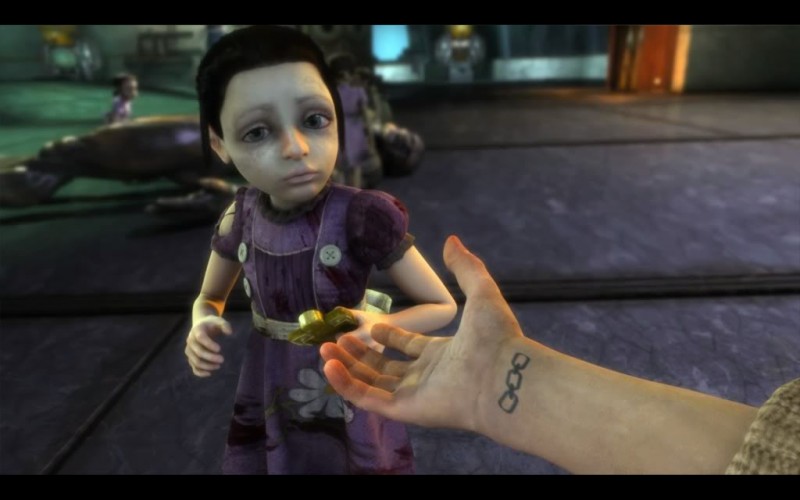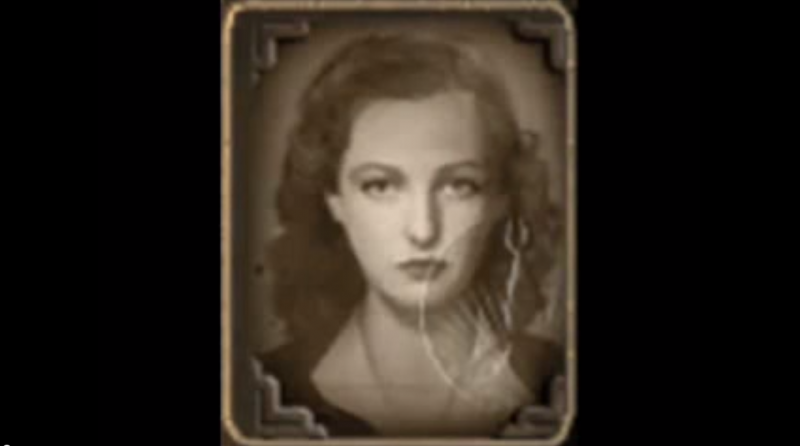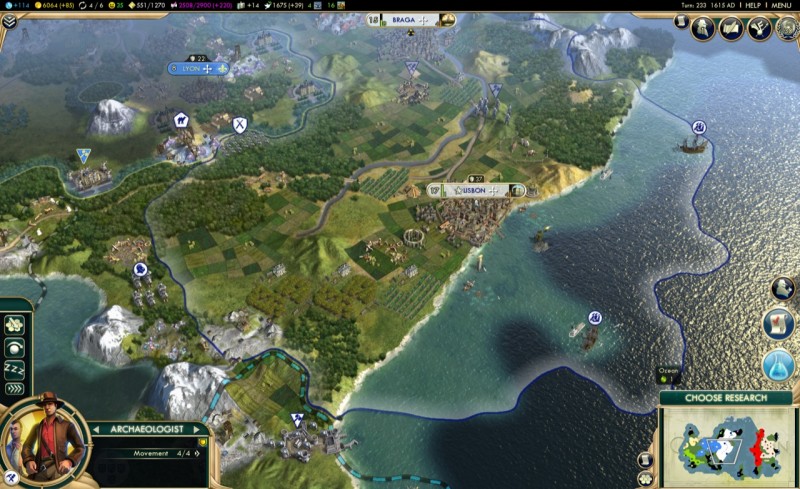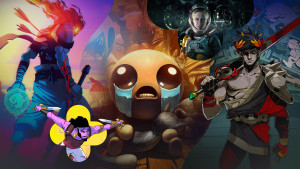Please support Game Informer. Print magazine subscriptions are less than $2 per issue
Conflict In Utopia - How Relationships Are At The Heart Of Ken Levine's New Game

Earlier today, we published the first half of our interview with Ken Levine. We spoke extensively about authentic diversity and the subtle approach to building believable characters.
As we continued to speak, our conversation turned toward Levine's current project. In February 2014, Irrational Games was "wound down," leaving a small team to work in a new direction.
Levine's new studio is working a new type of narrative experience, which he was willing to speak to me about during our conversation. The team has just started voiceover work with the first actor involved.
“The whole system that I came up with and that we’re developing is based upon the fact that to make an interesting character, you have to have a character who has a bunch of passions, wants, and needs,” Levine explains. “The player now has the ability to facilitate those wants or needs or go against those wants or needs or ignore those wants or needs. The reason I think the system is going to work is because it’s a very organic way to look at a character. It’s a quite systemic game. The system we’re in, the character’s feelings about you change, they go up and down. But the heart of a character is still wants and needs, and that makes it no different than anything I’ve ever written before.”
Levine intends the new approach to give players more agency with regard to non-player characters. How those individuals act toward you is based on a number of choices and actions players make throughout the experience.
“When you look at BioShock and BioShock Infinite, you had some tiny bits [of agency] with the Little Sisters when you harvested, but it led to one of two monolithic endings,” he says. “In the new game, you have very fluid relationships with the characters. They have a spectrum of feeling about you based upon what you do and if you help them or go against them. That changes dynamically, and you can end the game with a character absolutely despising you or somewhere in the middle. The path to getting there doesn’t have seven or eight stops like your traditional branching tree structure. It has potentially thousands of stops with hundreds of thousands of potential states you can be in with all your relationships to all the characters and wants.”
Our conversation loops back to Levine’s core beliefs about authentic diversity and believable motivations. “If you look at the characters and what they want and need, that’s the heart of what the characters are,” he says. “It’s not their skin color, not their religion, not their sex. It’s what they want, what they need, and what’s in their way. That’s a function of talking about who they are and how they got to this place. Sometimes it’s skin color, race, or gender gets them to that place. But that’s a story.”
He bridges to an example pulled from BioShock. Again, we discuss Brigid Tenenbaum and how the combination of her ethnic background, medical condition, and circumstances create a character that is flawed and believable.

“Tenenbaum’s a Jew. Tenebaum’s a highly functioning autistic. Those are instrumental in getting her to that place, but a different autistic Jew wouldn’t have ended up there, because there is something about her and what she wants – her absolute adoration of science – to the point where she fails to see every other thing,” Levine says. “She’s blinded to everything, including what to us would be the obvious aspects of morality. And that’s all compounded by the fact she’s in an oppressed world, the Holocaust, in which morality ceases to exist for her. She’s not in a place where there is any morality.”
That same set of circumstances imposed on another person would yield very different results, Levine tells me. Tenebaum’s devout worship of science is a piece of her personal puzzle that creates her unique picture.
“There are plenty of other Jews who would not choose to do what she did," he says. "But she chose to, because it aligned with her passion for science. Of all the crazy things, she found what she needed by being rounded up in the Holocaust. In Rapture, she followed the same line, until a dam broke within her and then her wants and needs changed. She didn’t want to change, but she did change. She couldn’t help it.”
Levine tells me that boiling Tenebaum to her core components – woman, autistic, Jew – does her a disservice. It makes her a list of ingredients and not a person, but more importantly it robs her of that core spark that makes us human.
“I think if you look at that story I just told you, and you say that it’s all because she’s a Jew or a woman or autistic, that makes a much more boring version of the story. It removes all agency she has and makes her a passive actor in the face of all those things. Would you say Tenenbaum’s a strong woman? Absolutely. Would you say she is a brilliant woman? Absolutely. Would you say that she is a good woman? A positive woman? That’s a really good question and much more interesting about Tenenbaum than it is about someone on the day she was born says, ‘I am going to do some good.’”
During our conversation, we kept coming back to the concept of internal and external forces that act on people (and characters). The theme of oppression is one that exists throughout the BioShock series, and Levine explained why it is so important to overarching narrative.
“I believe that s--- flows downhill. And when people get treated like s---, it often has the effect of turning people into oppressors,” he says. “Some people rise above it. Some people don’t. I think that that’s the curse of oppression.”
The characters in the BioShock games are largely broken, beaten-down individuals. Life has worn on them, and in many cases eroded their humanity. Only one escaped that fate.
“That’s the extra disgusting gift that oppression gives – it often turns the victim into an oppressor themselves,” Levine says. “Of all the characters in both BioShock games, many of them display that. Probably the only one that rises above that is Elizabeth, which is why she is at the center for BioShock and BioShock Infinite. I think that is a very rare person.”
Read on for the conclusion as we discuss a surprising influence for Levine’s latest work.

Conflict both global and personal
As our conversation started to wrap up, I asked Levine more about the systems he’s creating for his new game. Since players will be able to push NPCs away by disregarding or working against their needs, I wondered if it is possible to “win” with everyone you’ve come into contact with hating you.
“If you look at a game like Civilization, you can win that game by pissing off everybody around you,” he says. “You don’t necessarily win as a function of your decisions to piss off everybody, but you did things to move your agenda forward. One of the reasons I love that game is it tells a very interesting story. It doesn’t do it in a very specific way through dialogue or anything like that.”
Using that example, Levine explains how Civilization’s core diplomacy layer relates to interpersonal relationships in his upcoming game. “In life, it’s helpful to have friends. It’s helpful to manage your relationships,” he says. “What we want to do is model that core experience, which is, ‘I need this for myself, but that is going to make this guy like me, but it’s going to piss him off. What do I do?’ You’re trying to figure out ways to make everybody happy while not compromising the needs that you have and the various relationships you have.”
The fact is that, as in life, we aren’t going to please everyone. But Levine is working to model those interpersonal relationships in a believable way.
“That’s the heart of what we’re doing,” he explains. “It’s a tricky situation. How do you build that simulation? There’s a whole system that underpins that, and we develop content (characters, writing, scenarios, and tons of dialogue) that supports that story. This exists in Civilization to some degree, with Civilization being one of, if not my favorite, games of all time. It’s a huge inspiration for what we’re doing, thinking about these relationships that have ebb and flow. We’re just applying narrative content to it, dialogue.”
We may start learning more about Levine’s new team and more specifics about the project soon. I ask him if the studio finally has a name.
“We do,” he says. “We’re very excited about it and we’re getting all the materials together.” He wasn’t ready to pull the curtain back quite yet, but I suspect we’ll know soon. Until then, this gives us more to mull over before Levine and his team reveal the name of the studio and put more shape around the ambitious project.










